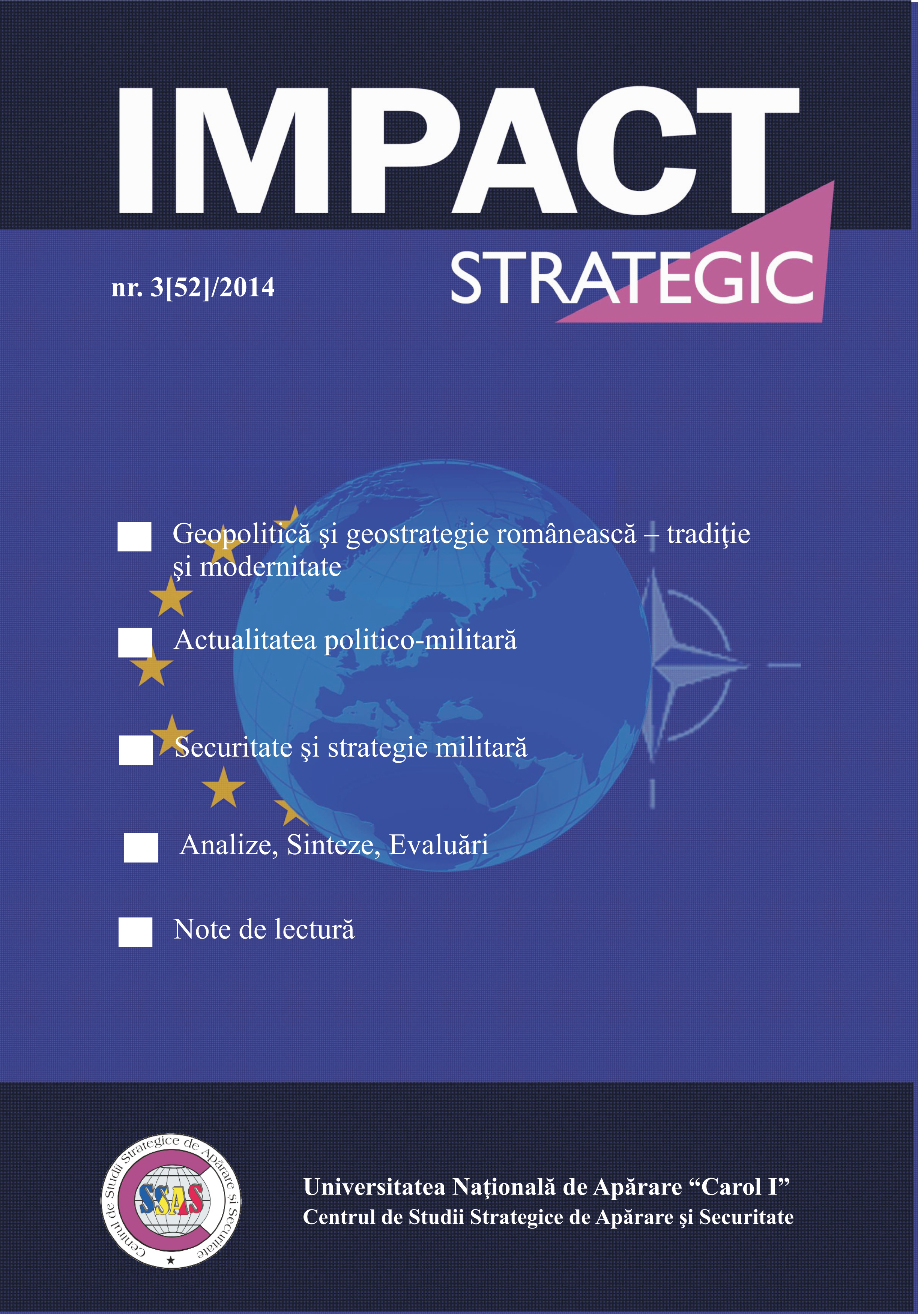Geopolitica Regiunii Extinse a Mării Negre după criza ucraineană
Geopolitics of the Wider Black Sea Area after Ukraine Crisis
Author(s): Iulian CHIFUSubject(s): Politics / Political Sciences
Published by: Carol I National Defence University Publishing House
Keywords: globalisation; post-modernism; soft power; security through interdependence; revisionism; future new world order
Summary/Abstract: The crisis in Ukraine has created a new opportunity for the revision of the thoughts that we’ve once had on the future of the World Order. As Fukuyama revised his idea about the End of history1, we are now confronted again with the situation of an end of the holiday that stability and peace offered at a large respect in Europe after the fall of the Berlin Wall. The “holiday” is over and we’re back to the old power politics. In this context, there is a full revision of what continues to stand from the general theories and our ways of seeing the world, from globalization, post-modern soft power, influence and transformative power of the EU in the borderlands, the liberal approach of the security through interdependence, and the fall onto a new era of geopolitics and realpolitik. The data was there, we just didn’t want to accept that the retreat of the Russian Federation from the CFE Treaty in 2007, or the Russian Georgian War in 2008, or even the annexation of Crimea in February 2014 will through us in a new inter-war period once we took note of the speech of President Putin, 18th of March 2014, on the long term project that he is offering to the Russian people, but also to Russians, Russian speakers, “compatriots” in the neighboring independent states. Back to square one, we’ve taken on our desks the books of Geopolitics and Realism in International Relations and we are looking into the evolution to decide if we are moving towards a revisionism in international affairs – renegotiating security in Europe, a transformative system – keeping just the few rules that survived to the new type of post-Cold War Wars, an adaptative system of the existing rules, accepting that what happens in the post Soviet space is a “special case”, to be considered under different type of glasses, respecting the exceptionalism and the interests of a once again strong Russian actor in Europe or should we stand in the orthodoxy of the International Law, meaning respecting rules, norms and principles that offered more or less peace in Europe and the World after WWII, 1948, the creation of the UN, 1975 and Helsinki Final Act, 1991 the Chart of Paris for a New Europe, 1997 NATO-Russia Founding Act.
Journal: Impact strategic
- Issue Year: 52/2014
- Issue No: 3
- Page Range: 7-16
- Page Count: 10
- Language: Romanian

